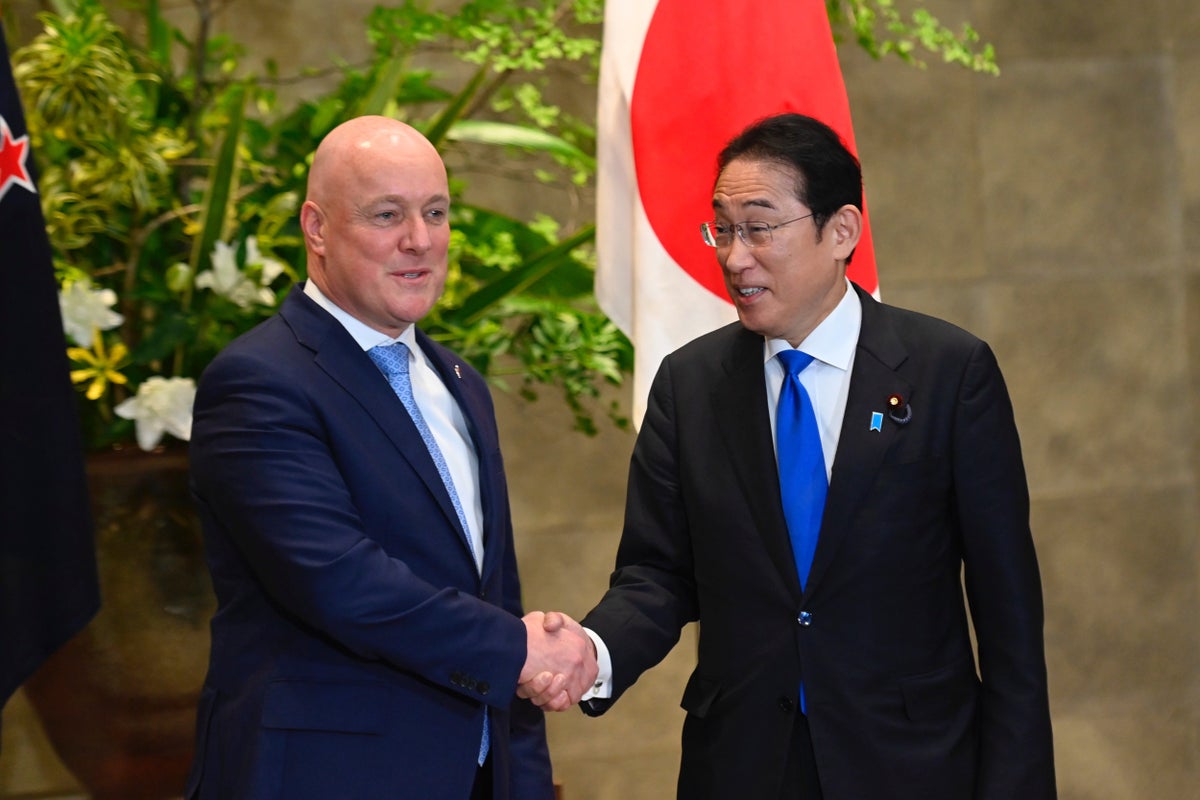
Japan and New Zealand agreed Wednesday in principle on an intelligence sharing pact as their leaders shared concerns over the increasingly challenging security environment in the region, including closer ties between Russia and North Korea.
In a joint statement, Prime Minister Fumio Kishida and his New Zealand counterpart Christopher Luxon expressed concern about rising tension in the South China Sea, where China has become increasingly assertive in pressing its territorial claims.
Kishida and Luxon “welcomed the agreement in principle of an information security agreement" to facilitate classified information sharing, according to the statement released by Japan’s Foreign Ministry.
The two leaders also agreed to accelerate talks toward signing a pact that would allow the two countries' forces to share logistical support and supplies during bilateral training and other operations.
Under Japan's 2022 national security strategy the country has been accelerating military buildup and expanding defense partnerships amid threats from China, North Korea and Russia.
Kishida and Luxon condemned “in the strongest possible terms” the increasing military cooperation between North Korea and Russia, including the North's shipment to Russia of ballistic missiles used against Ukraine, the joint statement said.
“There is no more important time than right now for our two countries to be engaging together to understand and to respond to the serious regional issues in Japan's neighborhood,” Luxon told a joint news conference after the talks. He said the two leaders discussed Russian President Vladimir Putin's visit to Pyongyang and “how North Korea is fueling Russia's illegal war in Ukraine.”
Putin and North Korean leader Kim Jong Un on Wednesday signed an agreement that pledged mutual aid if either country faces “aggression,” at a summit held at a time both face escalating standoffs from the West.
Putin's visit was his first in 24 years as the United States and its allies expressed growing concerns over a possible arms arrangement in which Pyongyang provides Moscow with badly needed munitions for its war in Ukraine, in exchange for economic assistance and technology transfers that could enhance the threat posed by North Korea's nuclear weapons and missile program.
Japan has signed similar intelligence agreements with eight other countries including the United States, Australia, Britain, India and South Korea, as well as with NATO. Japan is also negotiating with Canada over a similar deal and has agreed with Ukraine to start talks.







